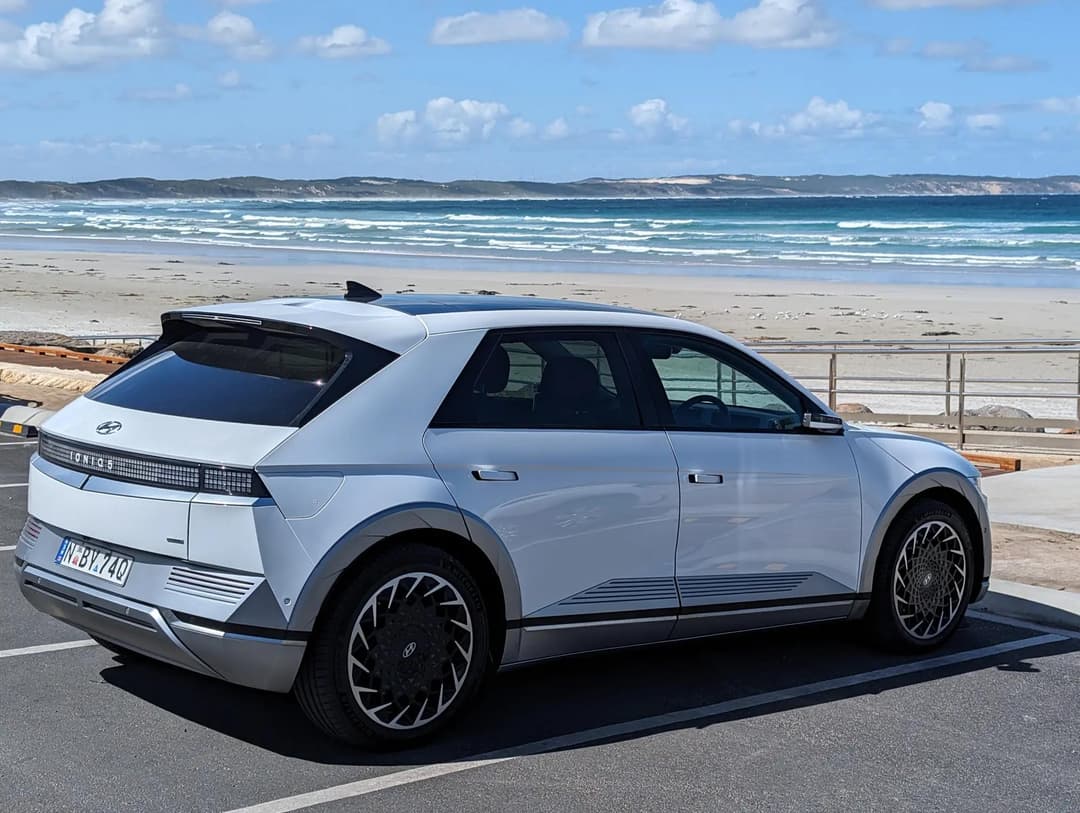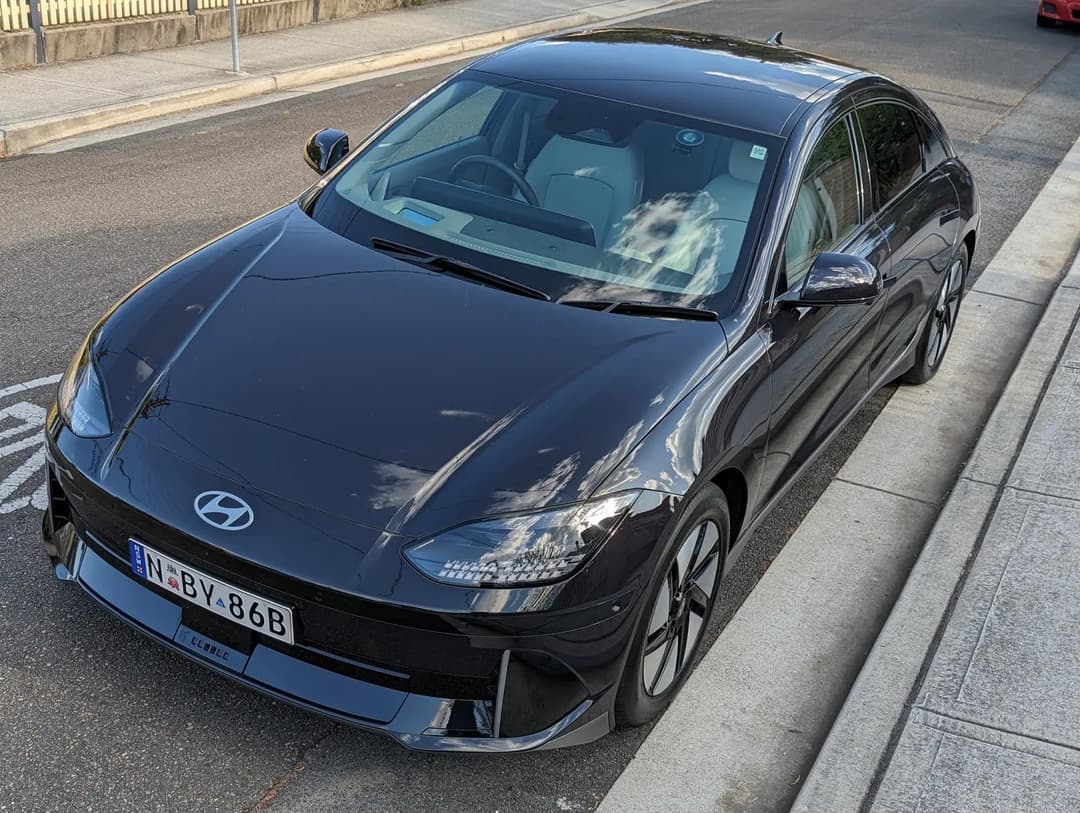Several readers who own Hyundai Ioniq 5 and Ioniq 6 electric cars asked me to find out about how Hyundai Australia is dealing with Integrated Charging Control Unit (ICCU) issues with these two E-GMP platform electric vehicle (

Over three and half thousand Hyundai Ioniq 5 and Ioniq 6 model electric cars sold in Australia were recalled twice during 2024 (REC-005942 and REC-006224) with the defect listed as:
"Due to a software issue in the Integrated Charging Control Unit, the auxiliary 12 Volt battery may not charge as intended, resulting in battery drainage and loss of motive power".
Prior to those recalls in September 2023, my understanding is that there was an Australian service campaign by Hyundai (not a recall) affecting 3049 Australian Ioniq 5 & Ioniq 6 vehicles.
The campaign consisted of a software update and in some cases replacement of the ICCU.
A service campaign isn't a mandatory recall, it's a voluntary action taken by a vehicle maker to address a specific issue with a specific group of vehicles.

Hyundai Point of View
A spokesperson for Hyundai Motor Company Australia (HMCA) spoke with Zecar's Neerav Bhatt to comment on the two recalls:
"Thanks for your email enquiring about the recent Hyundai and Genesis ICCU EV recalls in Australia and overseas."
"Hyundai is not aware of any confirmed crashes, injuries, fires or incidents related to this recall condition in Australia, nor in the United States or Canada."
"The subject vehicles are equipped with an Integrated Charging Control Unit (“ICCU”) which charges the vehicle’s 12-volt auxiliary battery and powers low-voltage vehicle accessory equipment."
"The ICCU may be subject to certain electrical load conditions that can cause the internal metal-oxide semiconductor field-effect transistor (“MOSFET”) to fail, potentially resulting in an open ICCU fuse."
"An open ICCU fuse results in an inability to charge the 12-volt battery. Upon fault detection, and accompanied by a series of driver warnings, the vehicle will enter a design-intended “fail-safe” driving mode that allows immediate full propulsion while gradually reducing motive power over time as the vehicle’s battery is discharged."
"Vehicle systems such as air bags, braking, and powered steering remain operational. If the vehicle is driven until the 12-volt battery state-of-charge is fully depleted the vehicle will lose all motive power, potentially increasing the risk of a crash."
"If a vehicle safety concern affecting a Hyundai vehicle is identified, HMCA complies with its obligations under the Australian Consumer Law and takes appropriate recall action."
"The safety and well-being of our customers is our number one priority."
"We make every effort to resolve issues for owners as quickly as possible."
"Hyundai is not aware of any failures of the ICCU once the software remedy has been applied."
"Owners of the affected vehicles should bring them to their local Hyundai dealer to have the ICCU software updated. The recall procedure will be performed at no charge."
"To check if your vehicle is affected, please visit the Hyundai Motor Company Australia website Safety Recall section".
Australian Ioniq 5 & 6 Owners Point of View
Australian owners of a Hyundai Ioniq 5 and Hyundai Ioniq 6 respectively provided comments on the ICCU issue, subject to them remaining anonymous:
Ioniq 5 Owner View
The anonymous Ioniq 5 owner provided his ‘pet theory’ that the Hyundai 12V batteries are poor quality and don't last long.
He wondered whether the result might be that the ICCU becomes stressed, working harder and harder trying to keep a virtually dead battery alive.
He started monitoring the voltage of the 12V system via a display he plugged into the 12V socket under the centre of the dash so he could notice if the voltage ever went low without then being charged.
He also noted that the 12V battery of his previous first generation Kona had not lasted much more than a year but its non-Hyundai replacement was still going.
He recounted that quite a few people with problems have simply installed a new 12V battery and their problems had gone away.
Now he has had the latest recall done and he also replaced the 2 year old original 12V battery with an AGM deep cycle battery immediately after.
Since the new battery and recall, he has noticed that the ICCU seems to be doing less charging.
The owner said they had no contact from Hyundai Australia for the recall or service campaigns but to be fair, they checked the recall website regularly so could have pre-empted any contact that they might have made.
Also the owner commented that by definition, the service campaigns are matters that are not so serious that they can't wait until the next time that a dealer sees the car.
Ioniq 6 Owner View
The anonymous Ioniq 6 owner advised that they had the following recalls/campaigns performed on their EV:
30D079 ICCU SOFTWARE UPDATE, AND ICCU AND FUSE REPLACEMENT
Service campaign from Dec 2023
41D022 INNER SHAFT REPLACEMENT (active recall)
The owner was frustrated because:
- The dealer needed parts so a loaner Yaris Cross was given
- They went in for ICCU service campaign only to discover a new recall shortly after that was done so they had to return to the dealer.
- They booked this one in as soon as they saw it but the dealership was not yet trained/no TSB on how to perform it, so the owner went home.
41D033 ICCU SOFTWARE UPDATE, AND ICCU AND FUSE REPLACEMENT (active recall)
Hyundai sent the owner a letter and emails about the above shaft replacement + ICCU active recall. All other times, the owner had to check for recalls or find out about them from forums.
41D236 ICCU SOFTWARE UPDATE, AND ICCU AND FUSE REPLACEMENT (active recall)
Another ICCU update. Each time the owner has not had any parts needing replacing (neither 12V, nor fuse, nor ICCU) but said they were inconvenienced by several hours.
40D070 ATCU PTC CONTROL LOGIC IMPROVEMENT
Heating component, service campaign.
The owner plans to follow up and do 40D240 VCU Logic Improvement later
Some control unit, service campaign.
Overall the Ioniq 6 owner commented that it would be better if Hyundai Australia:
- Emailed customers & sent postal mail for all active recalls and perhaps also for service campaigns (to give customers the option and information to make a choice)
- Sent software updates via OTA. The owners understanding is that Ioniq 6 OTAs are just for infotainment system updates. They say this isunfortunate given each recall is a half-day without your car.
About the author

Neerav Bhatt has been a technology journalist and photographer for over 20 years appearing in online, print, radio and TV media. His current focus is on helping Australians switch to electric vehicles as well as making their home fully electric, sustainable and climate resilient. Youtube: www.youtube.com/@NeeravBhatt Web: neeravbhatt.com
Stay up to date with the latest EV news
- Get the latest news and update
- New EV model releases
- Get money savings-deal
